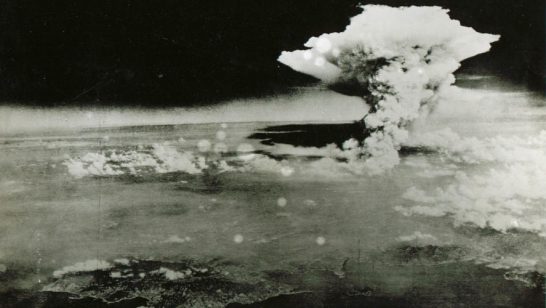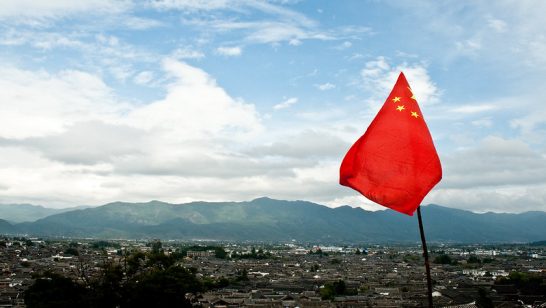
It has been a difficult and strange review cycle for the Treaty on the Non-Proliferation of Nuclear Weapons (NPT), characterized by uncertainty, anxiety and frustration. While diplomats worked hard to rally and approach with optimism the 10th Review Conference, which would have marked the 50th anniversary of the Treaty’s entry into force, expectations of the actual outcome were low. The uncertainty took on a new meaning with the postponement of the Review Conference due to the COVID-19 pandemic. Many are sceptical that the conference can convene even on the tentatively identified January 2021 dates, given the need to limit travel and practice distancing in the absence of an effective coronavirus vaccine.
Several developments that have an important impact on the atmospherics and substantive debates at the Conference remain pending: most significantly, the results of the US presidential elections and, relatedly, the fate of New START and US-Russian arms control, as well as the Joint Comprehensive Plan of Action and Iran’s nuclear program. Such uncertainties undoubtedly exacerbate the challenges of preparing for the 10th NPT Review Conference, already difficult without the possibility of face-to-face consultations and with new priorities competing for diplomats’ and policymakers’ time and resources. Furthermore, the pandemic itself raises a number of questions about nuclear weapons, security, and crisis management that governments and societies ought to ponder. On the other hand, the postponement of the Review Conference and disruption of familiar practices creates the opportunity to step back and take a broader view of the NPT regime and its review process. States should try to take advantage of this extra time and different perspective to develop a more compelling vision for the Review Conference and the future of the review process.
Of the various contingencies that governments need to prepare for in the run-up to the postponed Review Conference, US elections in November 2020 appear the most consequential. Should a Democratic candidate win, the NPT community could look forward to an eventual restoration of some degree of normalcy in the regime, although due to its timing, a January 2021 Review Conference would not bring about meaningful change. States parties should also consider how to approach not only the Review Conference but all of the next NPT review cycle if President Trump is re-elected, heralding the continuation of US retreat from multilateralism, arms control, and its role as a leader in the nonproliferation regime and international system writ large. As no single state is likely to be able to fill this leadership vacuum in the foreseeable future, the role of like-minded groupings would become particularly important.
In addition to the more familiar concerns, the pandemic has raised a number of issues that should inform the debate at the Review Conference, whenever it convenes. The spread of coronavirus and wide variation in different states’ response actions have highlighted the difficulty of mounting any kind of coordinated, international response to a global crisis. The less than stellar, and in some cases shocking, performance by most of the nuclear-weapon states is particularly jarring in this regard. How would individual countries and the world respond to a use of nuclear weapons? While nuclear risk reduction has already been a prominent topic during the current review cycle, most of the conversations have focused on the probability side of the risk equation. The issue of consequences and (lack of) response capacity, previously raised by the Humanitarian Initiative, should feature more prominently in the NPT debates again.
The pandemic brings to the fore another idea that had informed the humanitarian dimension debate in the NPT: the human security paradigm that shifts the attention to humans and communities from the more familiar national conception of security. As states revisit their understandings of what, indeed, constitutes security and key threats, a reassessment of the role and value of nuclear weapons and a re-energized debate on the subject at the Review Conference would be in order.
Finally, the delay of the conference and disruption of the usual preparatory processes could offer an opportunity and space for a new vision for the Review Conference and review process to emerge. It is important to remember that 2020 marks not only the 50th anniversary of the NPT’s entry into force but also the 25th anniversary of its indefinite extension. Had the main competing proposal for the extension prevailed in 1995, the NPT states parties would have faced the necessity of extending the treaty again this year. It is fitting then to use this moment to pause and consider the meaning of the indefinite extension, to recall the promise of progress and accountability it held in the decisions on Principles and Objectives and Strengthening the Review Process.
Past review conferences have demonstrated the difficulty of reviewing the implementation of previously agreed steps, and there is little reason to expect states to be able to conduct, much less agree on, a detailed implementation review at the next conference. Rather, as an overarching goal of this double-anniversary Review Conference, states should aim for a broader assessment of the extent to which the vision underlying the 1995 extension has been fulfilled and look for ways to restore the credibility of the review process. This is far from an easy task and might indeed look impossible under current circumstances. However, the delay of the conference has given states more time to reach out and put forth a positive compelling vision for the treaty, to transcend regional and ideological divides among its states parties and inspire renewed faith in the future of the NPT regime.
The opinions articulated above represent the views of the author(s) and do not necessarily reflect the position of the European Leadership Network or any of its members. The ELN’s aim is to encourage debates that will help develop Europe’s capacity to address the pressing foreign, defence, and security policy challenges of our time.
Image: Flickr, Ted & Dani Percival



